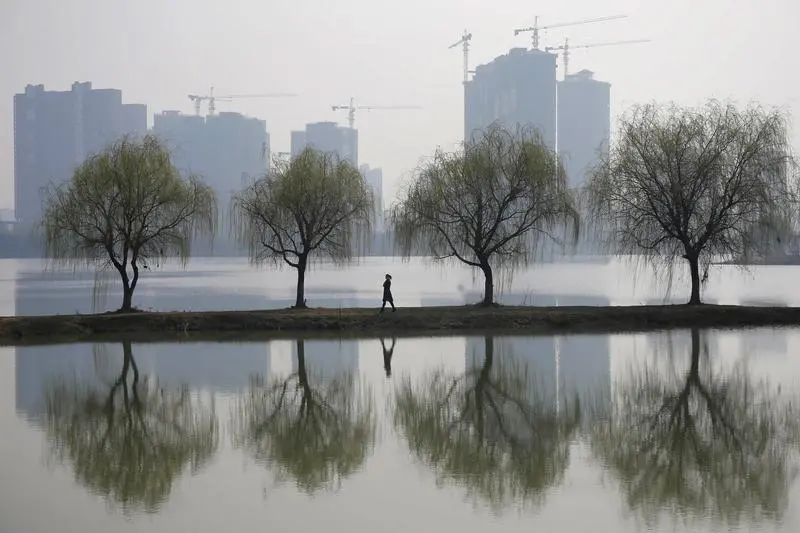PHOTO
Shares of Chinese property developers rose on Friday as investors expected authorities to announce more measures to stabilise the crisis-hit sector, with fresh data showing the fastest drop in new home prices in more than nine years.
Waves of property market support measures over the past two years have failed to turn a sector which accounted for a fifth of economic activity at its peak and remains a drag on growth, but markets are betting on more decisive action later in the day.
China's housing ministry, central bank, the National Financial Regulatory Administration and the Ministry of Natural Resources will hold a news briefing on Friday afternoon about policies to ensure completion of housing projects.
Investors were also waiting for measures to clear a growing stock of unsold apartments after Bloomberg News said on Wednesday the government was gathering feedback on a preliminary plan to get state-owned firms to purchase some of them.
"Markets look forward to aggressive polices," said Zhang Dawei, analyst at property agency Centaline. "Supportive measures such as guaranteeing housing deliveries are expected."
Hong Kong's Hang Seng Mainland Properties Index climbed 1.5%. China's CSI 300 Real Estate index was up 0.1%, having already gained 5% this week.
The upbeat mood in the stock market contrasted with the harsh reality on the ground, highlighted by poor housing data on Friday and a Hong Kong court hearing of a petition seeking the liquidation of embattled developer Country Garden.
The hearing was adjourned for June 11. Another major developer, China Evergrande Group, was ordered to be liquidated in January.
New home prices fell for a tenth consecutive month by 0.6% month-on-month in April, which was worse than a 0.3% fall in March and the fastest decline since November 2014.
A separate data set showed property investment in the first four months of 2024 falling 9.8% from a year earlier.
Property sales by floor area in January-April logged a 20.2% slide year-on-year, while new construction starts fell 24.6%. Funds raised by developers were also down 24.9% year-on-year.
Of the 70 cities monitored for the housing data, 64 reported declines in prices last month, more than the 57 cities that did so in March.
"The continued decline in property prices will intensify the wait-and-see sentiment" among would-be buyers, said Guan Xuerong, senior analyst at Zhuge Real Estate Data Research Centre.
"The industry adjustment is not yet over. It will take time for the market to recover."
FRAIL DEMAND
Since the property market soured in 2021, triggering a series of defaults among developers, China has lowered interest rates and down payments, while most cities have eased or removed prior purchase restrictions.
A whitelist developer funding programme for project completion is also struggling to get traction.
And a campaign flagged by Chinese authorities at a key political meeting last month to encourage people to replace their old apartments with new ones is off to a poor start as buying interest in second-hand homes remains tepid.
Many analysts believe the large stock of uncompleted residential projects and growing numbers of unsold new homes and second-hand properties listed for sales require government intervention to boost developers' cash flows and compensate for frail market demand for apartments.
Ongoing worries about the overall strength of the economy, which is powered more by industrial production than domestic demand, are expected to keep many Chinese away from big spending decisions in the property market.
"Consumers, who still have shaky expectations of future incomes, among other things, will continue to be cautious," said Bruce Pang, Greater China head of research at JLL.
Goldman Sachs estimated this week that saleable housing inventory was valued at 13.5 trillion yuan ($1.87 trillion) at the end of 2023 and because some of their construction had not been finished, it would require 5 trillion yuan of capital investment to complete them.
It remained unclear how any government intervention would be funded, with local governments already more than $9 trillion in debt. (Reporting by Liangping Gao, Ella Cao and Ryan Woo in Beijing and Clare Jim in Hong Kong; Writing by Marius Zaharia Editing by Shri Navaratnam)





















